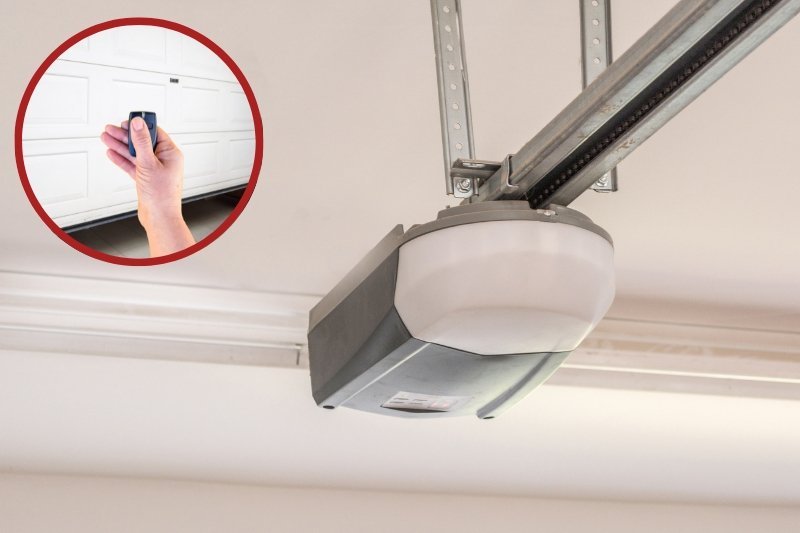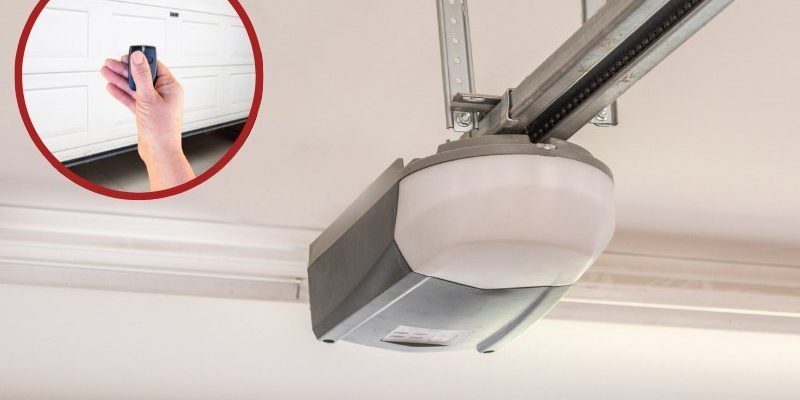
Each type of garage door has its own unique characteristics that impact how well it works with different types of openers. While a heavy wooden door might require something powerful and robust, a lighter insulated door can function perfectly well with a quieter, more energy-efficient model. It’s all about finding that sweet spot where your door and opener match like peanut butter and jelly.
What Are the Main Types of Garage Doors?
Before we get into how to choose an opener, let’s take a moment to understand the types of garage doors you might have. Generally, you might find three main types: wood, steel, and insulated. Each comes with its own set of benefits and challenges, so knowing what’s in your garage can help you make an informed decision.
Understanding Wooden Garage Doors
Wooden garage doors are often beloved for their beauty and warmth. They can give your home a rustic charm or add an elegant touch, depending on how they’re styled. But here’s the thing: weight matters. Typically, these doors are heavier than their metal counterparts. This means you’ll need an opener with robust power and durability to handle the extra weight.
Additionally, wooden doors are sensitive to temperature changes. They can swell in humidity and shrink in dry conditions, which may affect how they function with openers. So, for wooden doors, look for openers with:
- Higher horsepower ratings: A 1/2 HP opener should handle most wooden doors.
- Durability features: Options like heavy-duty chains can help prevent wear and tear.
- Smart technology: Some models offer features that can adapt to changing conditions.
In short: if you’ve got a wooden door, aim for a heavy-duty opener.
Steel Garage Doors: Strength and Versatility
Steel garage doors are popular for good reason. They’re known for their strength and resistance to the elements, making them a practical choice for many homeowners. Plus, they can be insulated, which helps with energy efficiency. When it comes to choosing an opener for a steel door, you have a bit more flexibility, thanks to their lighter weight compared to wood.
A few things to keep in mind when choosing an opener for a steel garage door are:
- Power needs: A 1/2 HP or 3/4 HP opener usually works perfectly.
- Reliability: Look for models with good reviews; after all, you want something that won’t leave you stranded!
- Safety features: This includes reversing systems to prevent accidents.
So, if you have a steel garage door, you’ll find plenty of options that can cater to your needs, whether it’s basic functionality or advanced features.
Why Choose Insulated Garage Doors?
Insulated garage doors are designed to keep the temperature in your garage consistent, which can be a game-changer if you use the space for more than just parking your car. They’re typically made of steel, but filled with insulating materials to improve energy efficiency. When selecting an opener for an insulated door, you’ll want to consider the same factors as you would for a steel door, but with a focus on compatibility with the insulation.
Here’s what to look for:
- Efficiency: These openers often have energy-saving features that make them ideal for frequent use.
- Weight capacity: Ensure the opener can manage the extra weight due to insulation.
- Noise level: Quieter models can enhance the comfort of using your insulated space.
In essence, insulated doors require openers that are not just powerful but also smart about energy efficiency.
Choosing Between Chain, Belt, and Screw Drive Openers
Now that you understand your door types, let’s discuss garage door opener mechanisms. The three most common are chain drive, belt drive, and screw drive. Each has its pros and cons, depending on your specific garage door type.
1. Chain Drive Openers: These can handle heavy wooden doors well due to their strength but tend to be noisier. They can be great for robust wooden doors but might not be ideal for attached garages or homes where noise is a concern.
2. Belt Drive Openers: A quieter option, belt drive openers, are typically smoother in operation. They may be slightly less powerful than chain drives, but they work excellently with lightweight steel or insulated doors.
3. Screw Drive Openers: These openers are generally easy to maintain and are good for moderate weight doors. They’re simpler in design, which can lead to fewer repairs over time.
Depending on your door type and noise preferences, any of these could be suitable.
Power and Horsepower Ratings Explained
You might be wondering why horsepower ratings matter. Well, they give you a rough idea of how much weight the opener can handle. Here’s a breakdown:
– 1/3 HP: Good for lightweight doors and occasional use.
– 1/2 HP: Ideal for most standard residential doors, whether wood or metal.
– 3/4 HP: Best for heavier or oversized wooden doors.
Opting for more power isn’t always better, but you definitely want enough to handle your specific door weight without strain.
Smart Garage Door Openers: The Future is Now
Technology has transformed so many aspects of our lives, and garage door openers are no exception. Smart garage door openers allow you to operate your door using your smartphone, which can be a game-changer for convenience and security. No more worrying if you left the garage open while you were out running errands.
You’ll find models that let you:
- Monitor open/close status from anywhere.
- Receive alerts if someone opens the door when you’re not home.
- Schedule operations to open or close at certain times.
When choosing a smart opener, ensure compatibility with your existing home devices, like Google Home or Amazon Alexa, for the best experience.
Installing Your Garage Door Opener
Once you’ve chosen the best garage door opener for your door type, it’s time for installation. While some opt to call a professional, this task can often be a fun DIY project! Here are some quick tips if you decide to tackle it yourself:
- Read the manual carefully: Each model has unique instructions.
- Gather your tools beforehand: Most installations require basic tools like a drill and screwdriver.
- Take your time: Rushing can lead to mistakes or misalignments.
Remember, it’s essential to follow manufacturer guidelines to ensure safety and proper function.
Troubleshooting Common Issues
Even the most reliable garage doors can run into problems. If your opener isn’t responding, it might be a simple fix. Here are common issues and how to address them:
1. Door won’t open or close: Check the remote batteries and ensure the safety sensors are aligned.
2. Opener is noisy: Lubrication may help. Regular maintenance can prevent strains.
3. Lights don’t work: Replace the bulbs and check for a blown fuse.
Often, a little TLC can resolve most issues without needing a costly repair.
Choosing a garage door opener doesn’t have to be overwhelming. By knowing your garage door type and its particular needs—whether it’s heavy wood or energy-efficient insulation—you’ll be in a great position to pick the right opener. Remember to consider factors like power, type of drive, and additional tech like smart capabilities.
The proper opener will not only enhance the functionality of your garage door but also provide a seamless experience as you come and go. So, take your time, weigh your options with care, and you’ll find an opener that fits like a glove. Happy garage-ing!
